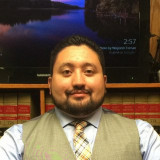Q: Facing forgery charges for cashing a check with friend's ID in WY, what are my legal consequences?
I was paid with a check for a job, but I had no ID, so the "pay to the order of" line was left blank. I cashed it using my friend's name and her ID, with her consent. The person who wrote the check is on my side and informed the police he gave it to me. I wore a wig to look like my friend. Now, I'm facing charges of forgery and interference, but I never signed or endorsed anything on the check—my friend signed her own name. What legal consequences might I face?
A:
You are potentially facing the charge of forgery in violation of Wyoming Statute section 6-3-602. You are facing a possible penalty of anywhere from probation and up to 9-10 years of incarceration and/or a $0-$10,000.00 fine or both. Cashing a check using the friend's name and wearing a wig to look like your friend for the purposes of passing a check written into your friend's name is going to appear like you intended to commit the crime of fraud, likely against the bank.
Other facts you have provided may be a mitigating factor or a defense to the crime. The elements of the crime of Forgery, as charged in this case, are:
1. On or about the ______ day of _______________, 20 _____
2. In ____________________ County, Wyoming
3. The Defendant, ____________________
4. With intent to defraud
5. Altered any writing of another
6. Without authority.
Assuming that the person who wrote the check, and the person who the check was written to are going to testify you had authority to alter the check, you might have a defense. What you are arguing is that you had the authority of both the authorizer of the check and the person whose name was written on the check.
I don't believe the analysis stops here. The problem is that you did not have the authority of the bank to cash the check under an assumed name. The bank was led to believe that you were indeed your friend, using her name and ID to cash the check, when the check was written to her. If so, this could be a forgery against the bank by itself. Potentially, the bank could argue that the use of a false ID to cash a check could be an intent to defraud the bank.
There is a case in the Wyoming Supreme Court called Binger v. State. See Binger v. State, 1986, 712 P.2d 349 (Wyo. 1986). In Binger, the Wyoming Supreme Court held that where a defendant "attempted to pass a check which was not genuine[,] was signed by him under a fictitious name and was on a bank in which [defendant] did not have an account and in which there was no account under the fictitious name," the proper charge was forgery. Binger, 712 P.2d at 355. In Binger, the defendant attempted to use a check under a fictitious name. Binger, 712 P.2d at 350. The store owner tried to verify the account owner and the check itself. Id. The store owner could not verify the check was valid. Id. The store owner was not out any money as they refused to accept the check and tore it into pieces. Id. Later, it turned out that the check was fraudulent, and the defendant was charged with forgery, even though the store owner was not out the money. Id. At trial, no effort was made to contact the person whose name was on the check to see if they authorized the defendant in Binger to pass the check. Id. The defendant in Binger was convicted on the presentation of the false instrument to the store owner alone. Id. For these reasons, I think that you still have great risk of receiving a conviction for forgery despite your two witnesses.
You did not provide any information concerning your charge of interference. Therefore I am unable to provide the insight you are seeking. The facts of your case as you laid them out are interesting and I advise you to seek counsel immediately. I hope this insight assists you in your efforts to procure counsel.
Justia Ask A Lawyer is a forum for consumers to get free answers to basic legal questions. Any information sent through Justia Ask A Lawyer is not secure and is done so on a non-confidential basis only.
The use of this website to ask questions or receive answers does not create an attorney–client relationship between Justia and you, or between any attorney who receives your information or responds to your questions and you, nor is it intended to create such a relationship. Additionally, no responses on this forum constitute legal advice, which must be tailored to the specific circumstances of each case. You should not act upon information provided in Justia Ask A Lawyer without seeking professional counsel from an attorney admitted or authorized to practice in your jurisdiction. Justia assumes no responsibility to any person who relies on information contained on or received through this site and disclaims all liability in respect to such information.
Justia cannot guarantee that the information on this website (including any legal information provided by an attorney through this service) is accurate, complete, or up-to-date. While we intend to make every attempt to keep the information on this site current, the owners of and contributors to this site make no claims, promises, or guarantees about the accuracy, completeness or adequacy of the information contained in or linked to from this site.
